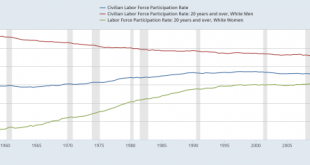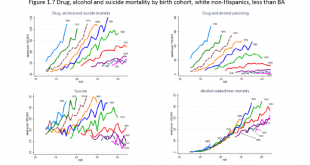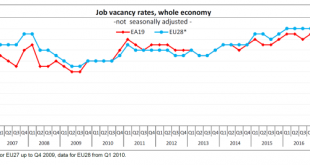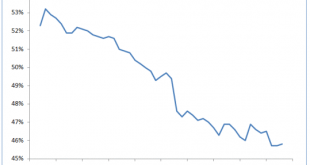from L. Randall Wray Trump has put forward a number of proposals related to the theme of ending globalization – including renegotiating NAFTA and pulling out of the TPP – many of which were directed at China and other exporters. Like many American politicians, Trump has claimed that China is a “currency manipulator” and promises to pursue an investigation. He’s proposed large tariffs to be slapped on imports (variously suggested as 45% on Chinese exports to the US, 20% on all imports, and...
Read More »Your model is consistent? So what!
from Lars Syll In the realm of science it ought to be considered of little or no value to simply make claims about the model and lose sight of reality. There is a difference between having evidence for some hypothesis and having evidence for the hypothesis relevant for a given purpose. The difference is important because scientific methods tend to be good at addressing hypotheses of a certain kind and not others: scientific methods come with particular applications built into them … The...
Read More »Original sin?
from David Ruccio No one ever accused American conservatives of being particularly original. They started with a story about the failure of government programs and they stick with it, against all evidence. Originally, conservatives targeted African Americans, who (so the story goes, e.g., in the Moynihan Report) were mired in a culture of poverty and increasingly dependent on government hand-outs. In order for blacks to regain America’s founding virtues (so the story...
Read More »Can Trump overcome secular stagnation?
from James K. Galbraith and RWER no. 78 Could the economic program of President Donald Trump, if enacted, overcome secular stagnation? This essay addresses part of that question, focusing on the effects of a changing macroeconomic policy mix and thrust in the present US national and global context. A separate essay will address considerations on the supply side. The phrase “secular stagnation” is usually attributed to the early post-war Harvard economist Alvin Hansen, one of the first...
Read More »Deaths of Despair. The Case/Deaton paper about mortality of White Americans. Some remarks.
Anne Case and her husband Angus Deaton have published a new paper about the deteriorating health of non-hispanic Whites in the USA. The use of more refined and more granular data as well as another year of data again shows a grim picture of ever rising ‘Deaths of Despair’. For those familiar with ‘Decline of the USA’, a book written by the editor of this blog Edward Fullbrook, their findings won’t come as a total surprise. But the situation stays abhorrent. Death rates of those white...
Read More »Flipped economics classroom
from Maria Alejandra Madi and the WEA Pedagogy Blog Recent active learning experiences have been associated with “flipped” or “inverted” classroom (Norman and Wills, 2015). Indeed, this method has been receiving increasing attention by professors that search for alternatives to traditional lectures so as to cover some topics of the course content. By adopting the flipped classroom in economics instruction, professors out to enhance a larger pre-class involvement of the students not only...
Read More »The man who crushed the mathematical dream
from Lars Syll Gödel’s incompleteness theorems raise important questions about the foundations of mathematics. The most important concerns the question of how to select the specific systems of axioms that mathematics are supposed to be founded on. Gödel’s theorems irrevocably show that no matter what system is chosen, there will always have to be other axioms to prove previously unproved truths. This, of course, ought to be of paramount interest for those mainstream economists who still...
Read More »Graphs of the day: vacancies and wages.
Via Eurostat (look here and here) information about the labour market: vacancy rates and wages. Vacancies are up, wages are rising at a very moderate rate (and in many countries, like Spain, not at all). These are wage costs and not wages, but at this moment the difference is small, notice that wages increase less than the 2$ inflation target of the ECB. Vacancies have developed favorably. About this: during the last year there have been tailwinds: (much) lower prices for energy,...
Read More »The capital-mobilising deal maker
from Jamie Morgan and RWER no. 78 As a brand, Trump is also a particular kind of contemporary businessman. He positions himself as a maker of “deals” rather than a maker of things, though his wealth is rooted in construction and property. He is an owner of portfolio assets, who uses these to leverage new ventures where he is able to conjure personal gain from situations where material benefits to the many may be lacking. His skill set is one of concentration and extraction of returns, and...
Read More »The fall of the US middle class
from Steven Pressman and RWER no. 78 According to Thomas Piketty (2014), between 1980 and 2010 the share of total US income going to the top 10% of earners rose from around 30-35%, where it stood for several decades, to nearly 50%. These are very conservative estimates. Piketty’s figures come from the distribution of adjusted gross income (AGI), reported by the US Internal Revenue Service. AGI subtracts from income things like investment losses, retirement account contributions and their...
Read More » Real-World Economics Review
Real-World Economics Review






